BUP Academic Blog by Frank Weinreich
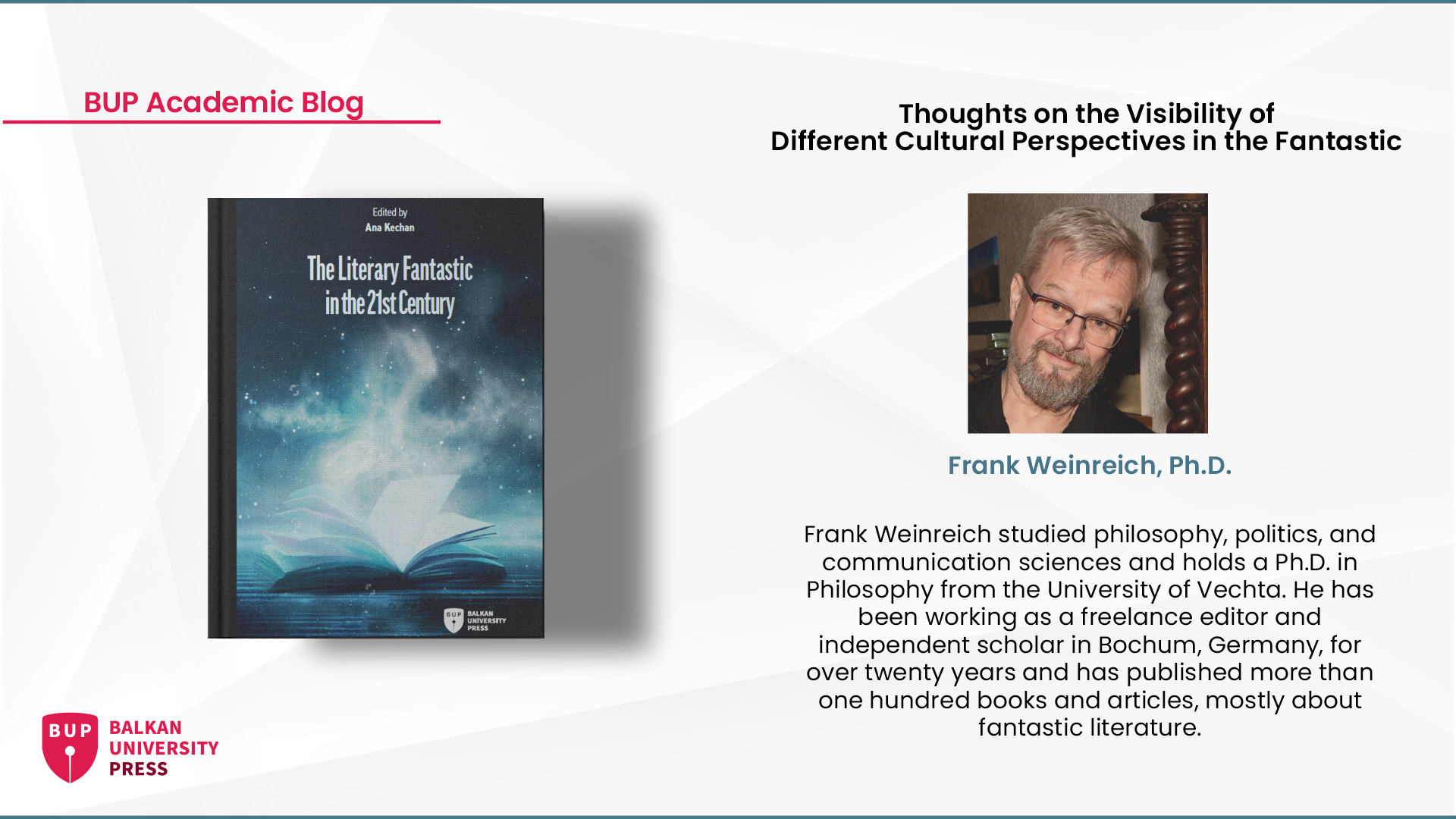
Seeing the Whole Universe.
Thoughts on the Visibility of Different Cultural Perspectives in the Fantastic
by Frank Weinreich
"I want more of the universe!"
(Dr. Who)
Myths, legends, fairy tales – all the ancient and earliest forms of imagination can be found all over the world, they are told and written down in all cultures and languages. This is because people, regardless of their origin and cultural socialization, have always tried to explain their existence and the world in which they live by all means, including speculative ones. This is no different in the modern expressions of the fantastic and its three major subgenres science fiction, fantasy, and horror. That is unless one looks at the global perception of fantastic stories in books and the most widely consumed media, where there is an astonishing hegemony of Western motifs and narrative traditions.
The most important thing that must be said about the fantastic is this: “Die Phantastik ist nicht phantastisch“ (the fantastic is not fantastic; Weinreich, 19). It was Ursula Le Guin who pointed this fact out most impressively when she said in a speech that fantastic literature tells above all about the ways we live our real lives, how we could live them, and how we should live them (Le Guin 58). This has not often enough been said explicitly. At least that is the impression you get when you read in all too many publications that the fantastic has little relevance to life and the way we live it, simply because of the unreal content of its stories. That this is not true, and that the genre often analyzes the world and its societies more accurately than some sociologists, as again Le Guin (58) says, is neither a new nor a surprising insight. The first classic works of the genre that come to mind without much thought, such as Orwell's '1984' or Stanislaw Lem's 'Solaris', Tolkien's 'Lord of the Rings' or Zamjatin's 'We', prove that sophisticated fantasy literature deals with politics, society, and philosophy, and thus with all the important issues that affect human beings.
Fantasy depicts reality. That being the case, it is important that we also can see the full reality that the different perspectives of the genre's stories, which are emerging all over the world, reveal in literary and artistic terms. While this is, of course, first and foremost an appeal to each of us to open ourselves up to the full breadth of the genre, we must not forget that the reception of art and literature is always a question of visibility. There are countless hidden pearls out there, but you not only have to be able to open these oysters. You first have to find them. Not all stories are equally visible to their potential audience in the shop windows of bookshops and in cinematic ads. Instead, books and films from the Anglo-American world tend to catch the eye. This is, of course, partly because the storytelling is often excellent and has long since crossed cultural boundaries to appeal to audiences around the world. This is not to say, however, that the imaginations of other countries and cultures are not equally good at storytelling and able to transfer equally compelling myths into the modern age. Individual global successes in recent years with explicitly non-Western cultural references, myths, and depictions of non-Western European life and values, such as Cixin Liu's 'Three Body Problem' or Andrzej Sapkowski's 'Witcher' series, are impressive proof of this and are no less important than the genre classics of Stanislaw Lem, Jorge Louis Borges or the Strugatzki brothers.
And yet the shelves in bookstores are mostly filled with Anglo-American publications. As far as Germany is concerned, the reason for this is quite simple. Firstly, publishers rely on the popularity of publications and names that sell well in the US and markets such as the UK, and secondly, they need to invest less money in bought-in titles than in developing and promoting local authors. And even at the next level of marketing – the review system, which has proven to be the most important marketing tool in recent years – critics and influencers (such as booksellers) pay most of their attention to the English-speaking market, not least because they are all too happy to copy or film each other. As a result, the German-language fantastic is largely fantastic literature translated from English, and the speculations are therefore disproportionately Western, or even US, speculations about reality. When I look at the sales figures in other countries, it seems that this is not limited to the German market. The Fantastic is a genre dominated by Westerners speaking with a heavy American accent.
In biology, this would be called a monoculture. Than it would be pointed out that survival and health are guaranteed by biodiversity, while monocultures are extremely vulnerable to all kinds of disturbances. The same is true of a monoculture of ideas, values, and cultural expressions. But how can hegemony be loosened or even broken?
The only way is to attract attention, especially in the book market. Film and streaming productions are too expensive for experimentation. There are some interesting opportunities for independent publishers in the games sector, but they have the same problem of visibility as book publishers, so the following also applies to them. On the publishing side, I see little courage among the big houses – as with the big game publishers – to be open to new material from fresh cultural backgrounds. But small publishers probably have a much better chance of attracting attention and readers by catering to supposed niches. There are quite a few of them in the German-speaking world, and – surprise! – they are also more likely to offer opportunities to local storytellers than the big publishers. As the second stage in the distribution process, marketing through social media has completely different possibilities than it did twenty years ago. But it also has to compete with a much larger chorus of voices. However, because of the sheer number of reviewers and book bloggers, one way to stand out and get noticed might be not to promote the next English-language romantasy like everyone else, but to devote yourself to different material and stand out by reviewing new and different kinds of stories. As the editor of a regional newspaper, you are more likely to get noticed by reviewing local authors than by reporting on George R.R. Martin's writer's block like a hundred other feature writers. And it's probably not much different for TikTok influencers.
Last not least, we academic publicists can also do a bit to promote the diversity of the fantastic by making our analyses and interpretations of fantastic narrative styles and content more accessible. In my observation, the academic study of fantasy is not so much lacking in diversity. Yes, libraries are filled with secondary literature on JRR Tolkien. But research also covers the whole range of genres in science fiction, fantasy, and horror. Not everything gets the attention it deserves, but on the whole, studies of the fantastic do not miss too much. It's just that they don't always report it in a very accessible way. Ursula Le Guin summed up the meaning and motives of the fantastic more precisely in two or three pages of text than many a deserving scholar has done in an entire monograph. We still have to learn this language – in addition to articles written and peer-reviewed according to scientific standards – if we want to deal with African myths, Slavic fairy tales, and Asian cosmogonies and explain their significance for human life and coexistence. Society also pays for research in the humanities and literary studies. We can repay some of it by reporting what we have discovered in the wide field of fantastic speculation around the world in our specialist articles and books, but also and more offensively and more easily understood in popular publications and social media; about life, how it is lived, how it could be lived, and how it should be lived.
References:
Le Guin, Ursula K.: The Language of the Night. New York 1979.
Weinreich, Frank: Die Phantastik ist nicht phantastisch. Zum Verhältnis von Phantastik und Realität. In: L. Schmeink/ H.-H. Müller (eds.): Fremde Welten: Wege und Räume der Fantastik im 21. Jahrhundert. Berlin, Boston 2012. 19-35. English online version: https://www.academia.edu/96913996/The_Fantastic_Is_Not_Fantastic_On_the_Relationship_Between_Fantasy_and_Reality
Frank Weinreich studied philosophy, politics, and communication sciences and holds a Ph.D. in Philosophy from the University of Vechta. He has been working as a freelance editor and independent scholar in Bochum, Germany, for over twenty years and has published more than one hundred books and articles mostly about fantastic literature.
Latest News
-

Opened call for the new issue of TEFMJ
Date: 10.02.2024 -
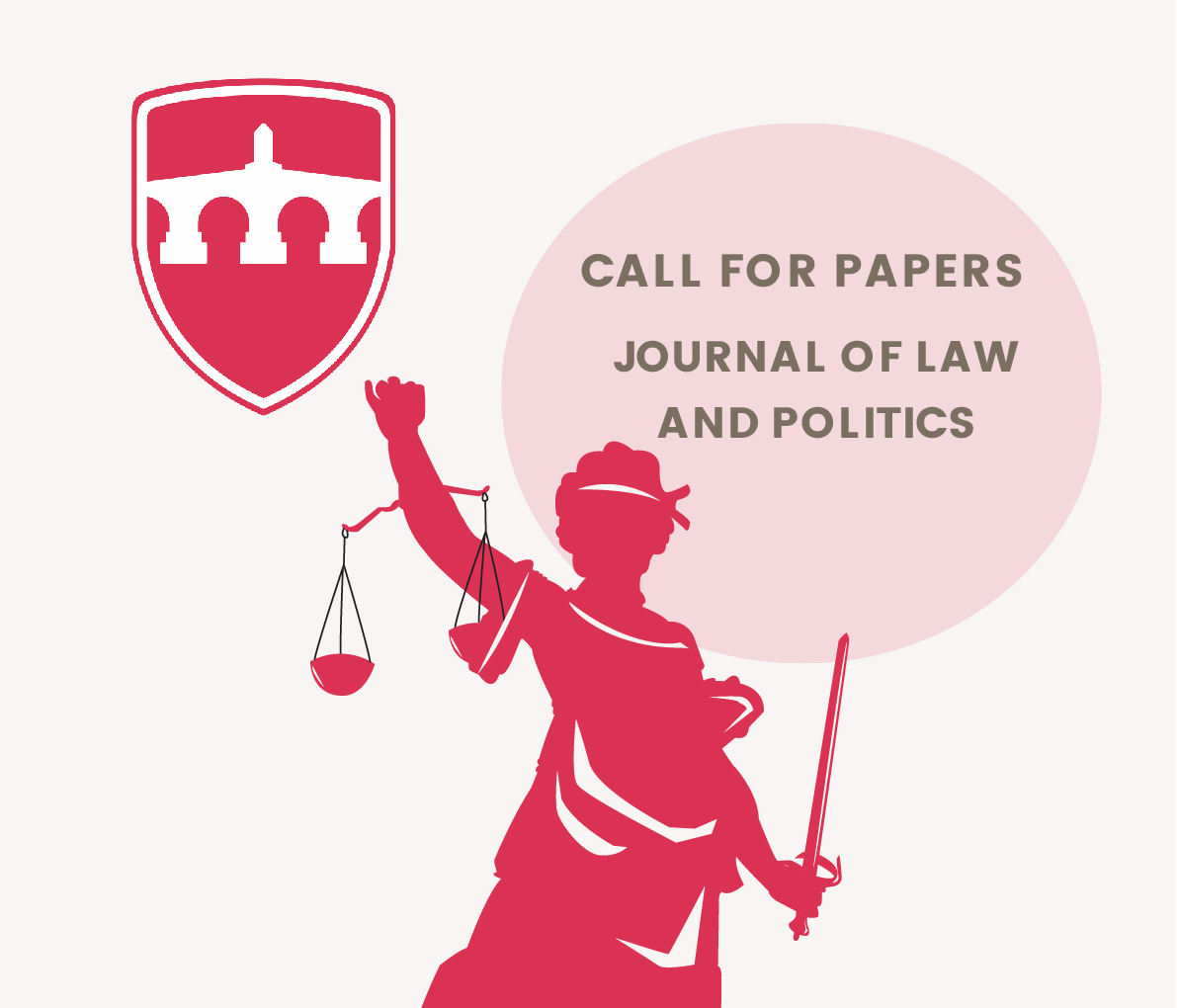
The Journal of Law and Politics welcomes your papers
Date: 10.02.2024 -
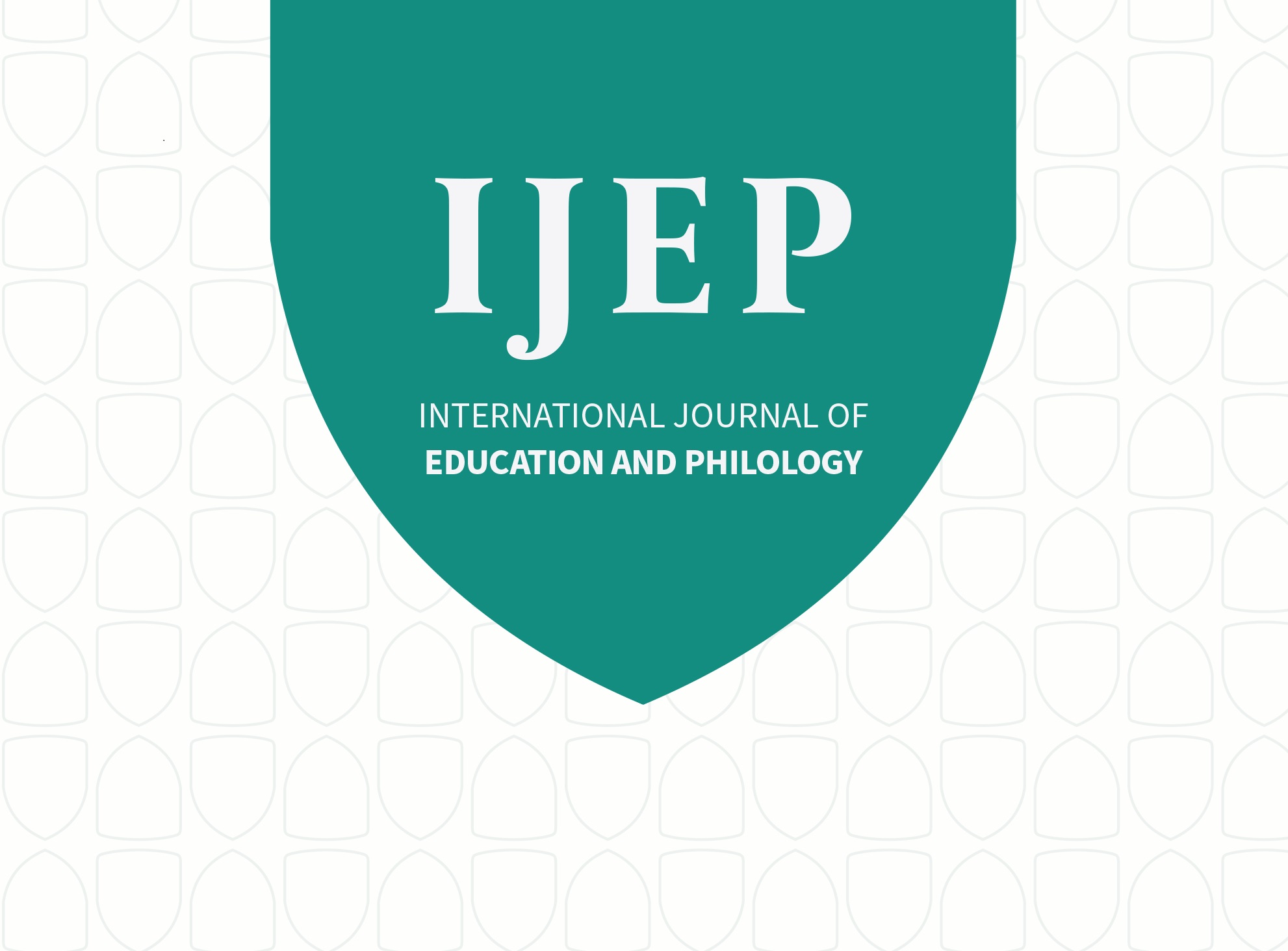
-

Call for Papers for an Edited Volume
Date: 27.05.2024 -

Open Call for Chapter Proposals
Date: 27.05.2024 -

The new issue of Journal of Law and Politics is here!
Date: 01.05.2024 -

TEFMJ June issue is published
Date: 01.07.2024 -

IJEP's Vol. 5, Issue 1 is now available!
Date: 02.07.2024 -

Vol. 4, Issue 1 - IJTNS
Date: 01.07.2024 -

The first IJAD volume is online!
Date: 02.07.2024 -

Balkan University Press Launches the Journal of Balkan Architecture
Date: 15.07.2024 -

-

Balkan Political Economy Series welcomes your proposals
Date: 18.07.2024 -
BUP Interview with Prof. Marija Miloshevska Janakieska
Date: 18.07.2024 -
BUP Interview with Asst. Prof. Dr. Ahmet Lökçe
Date: 24.07.2024 -

-
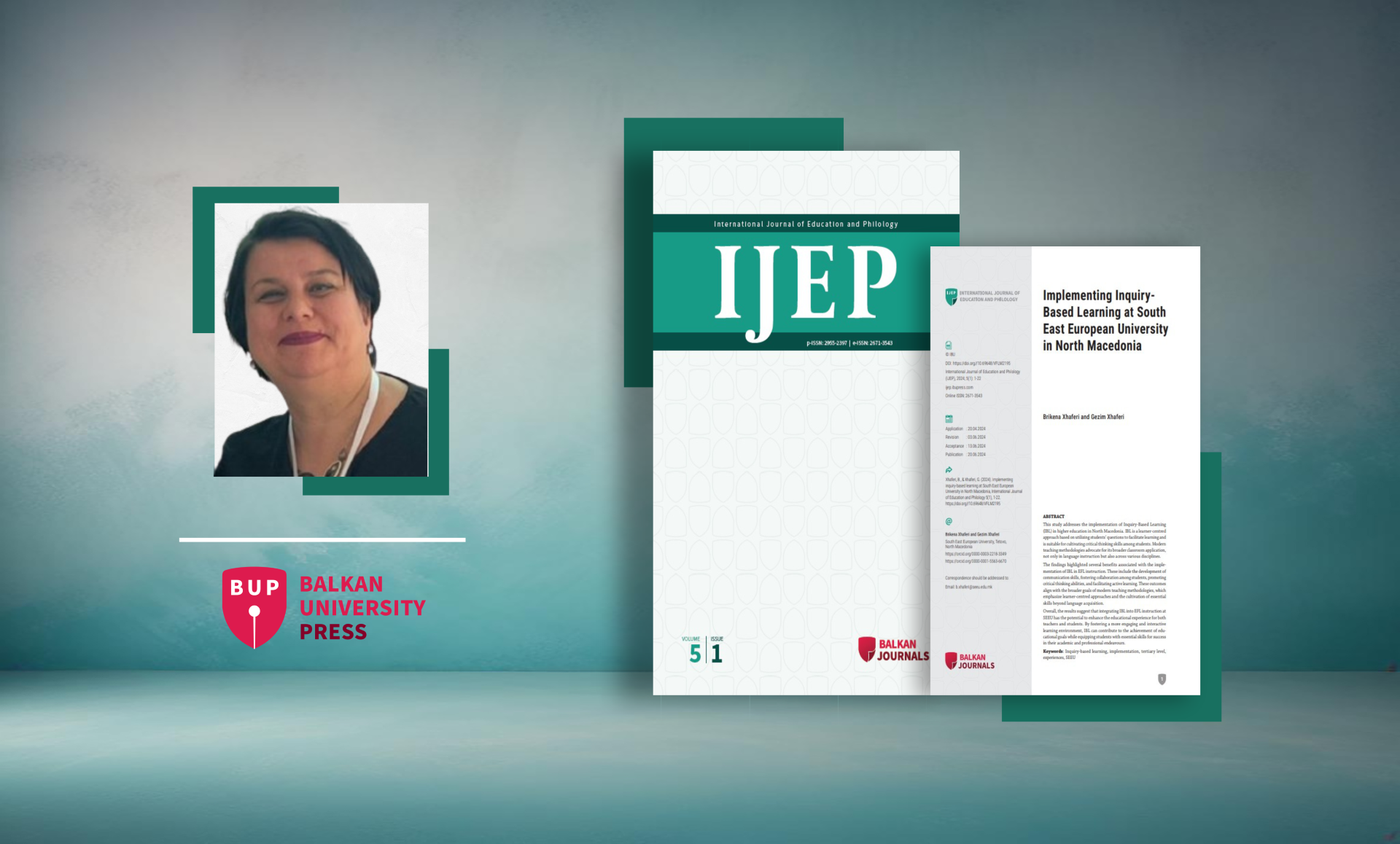
Prof. Xhaferi's blog for BUP
Date: 28.08.2024 -
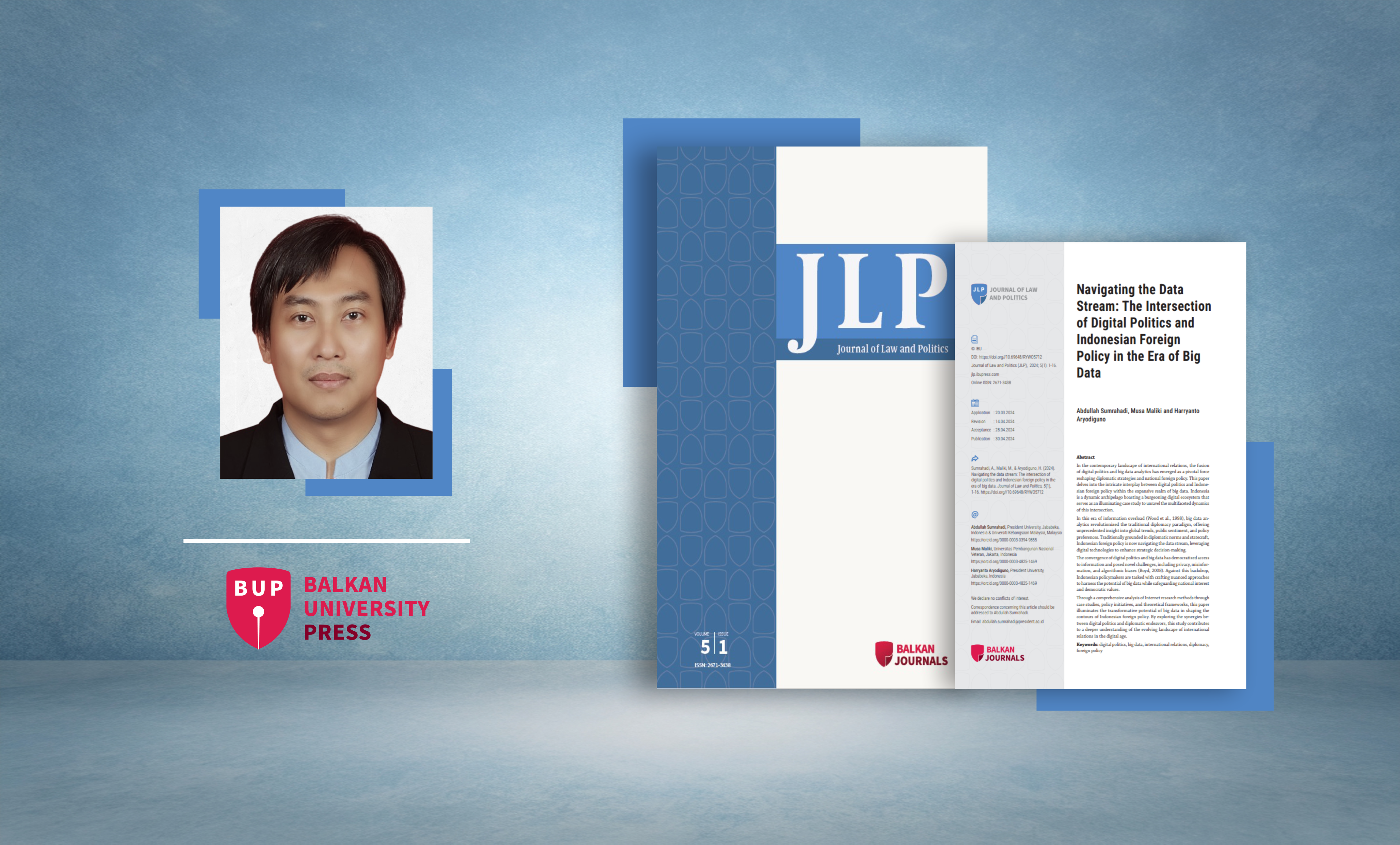
-
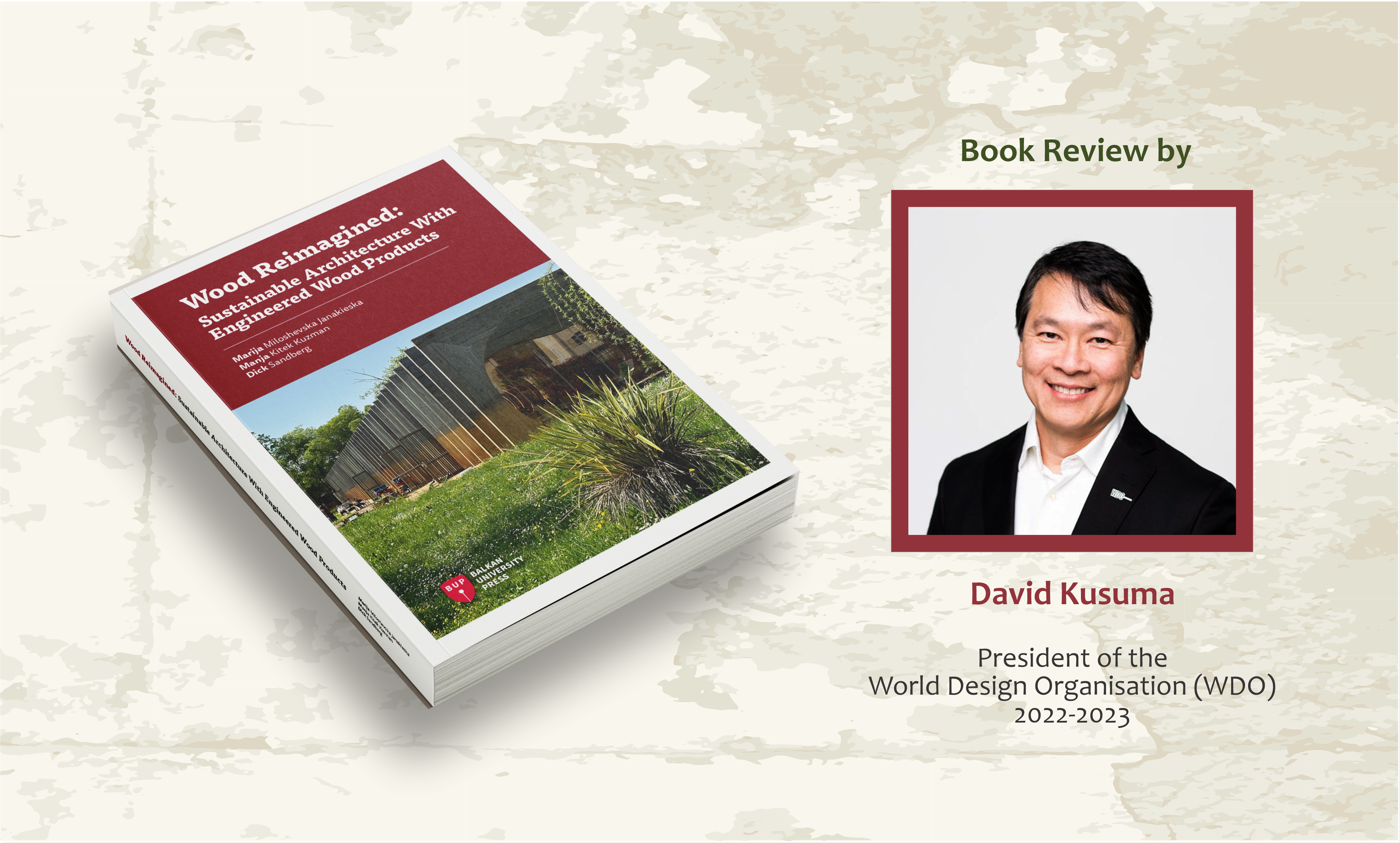
-

IJEP is now indexed in the Copernicus Journals Master List
Date: 23.09.2024 -
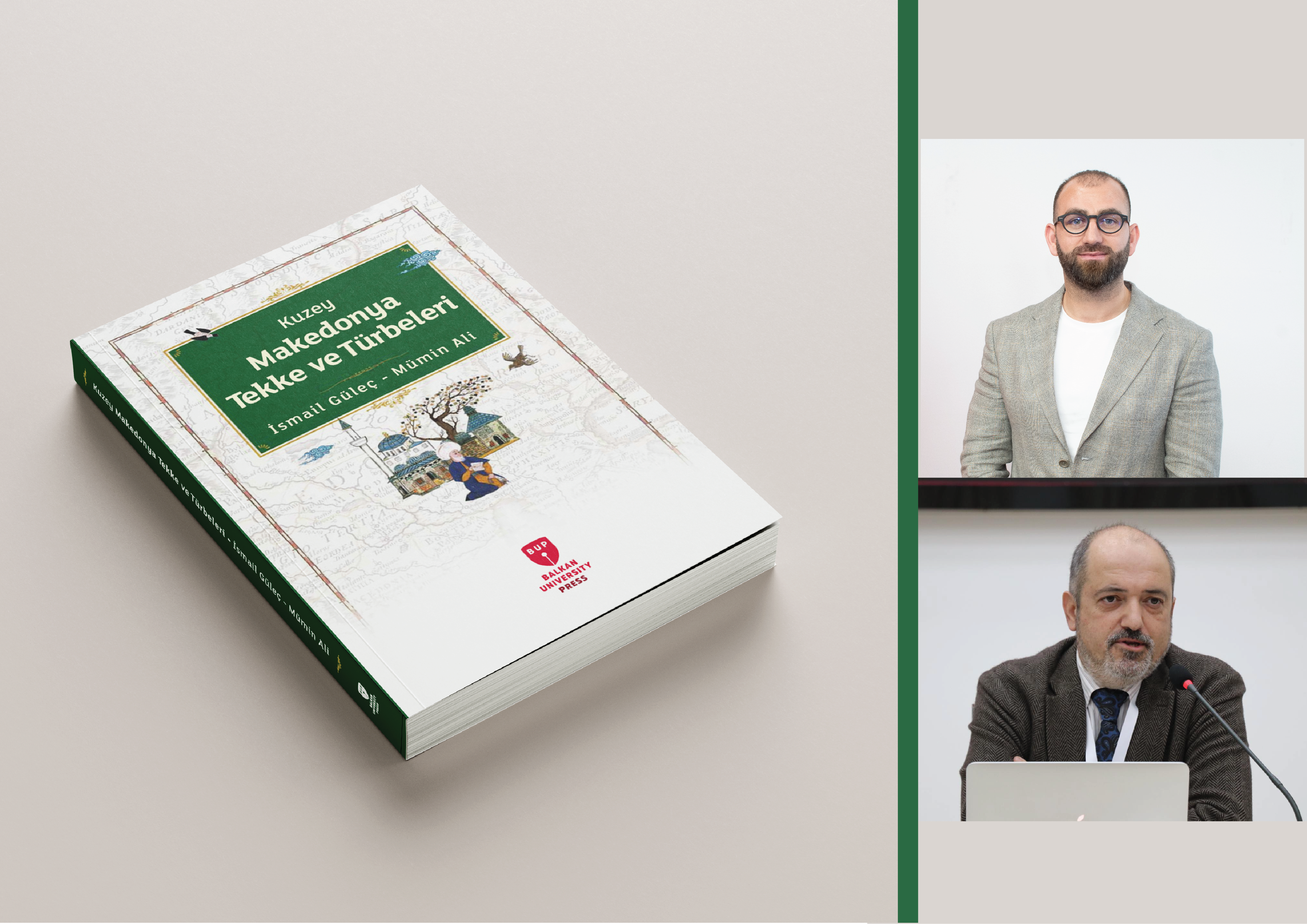
BUP INTERVIEW WITH PROF. ISMAIL GÜLEÇ AND ASST. PROF. MÜMIN ALI
Date: 26.09.2024 -
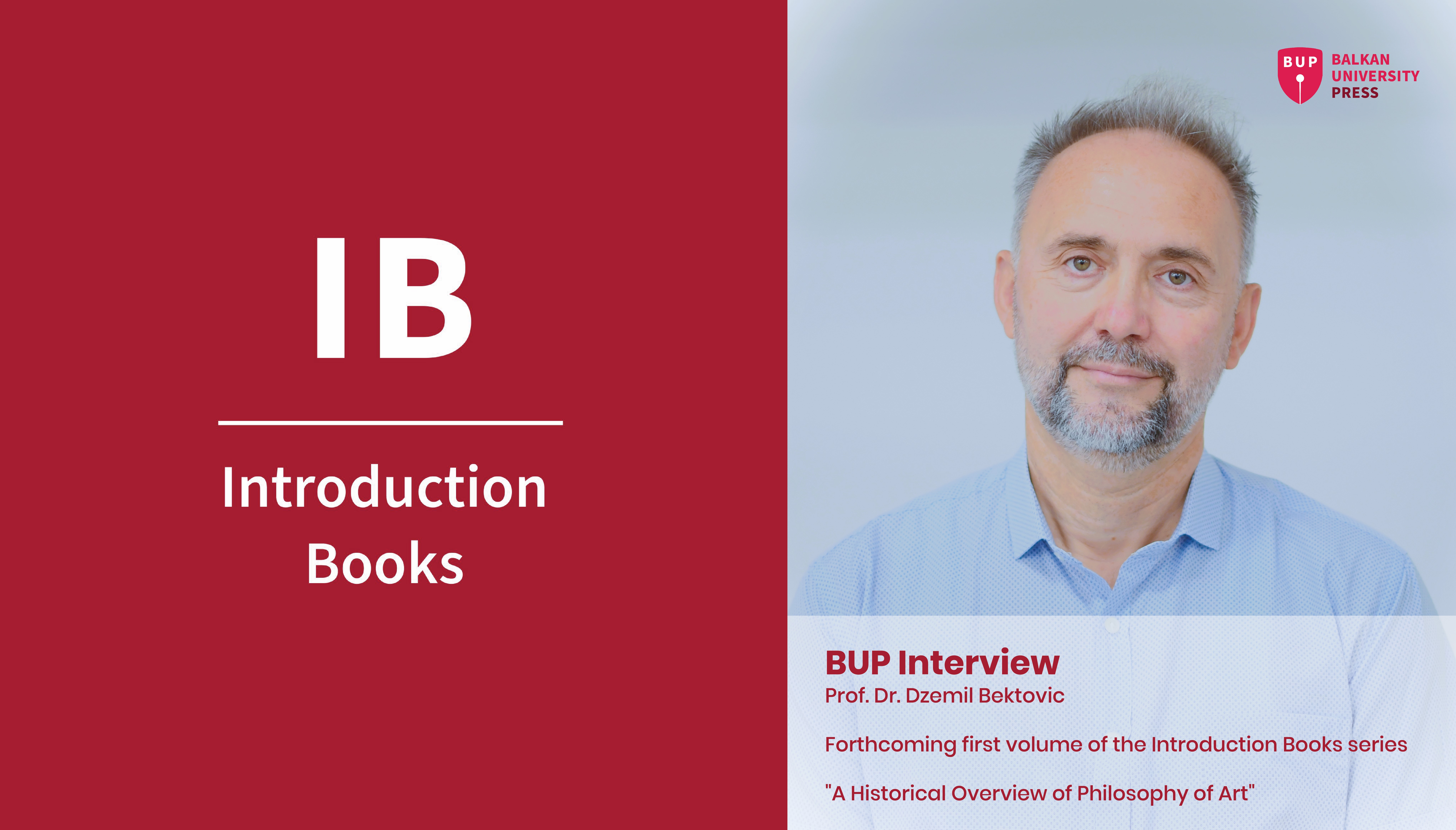
BUP Interview with Prof. Dzemil Bektovic
Date: 04.10.2024 -
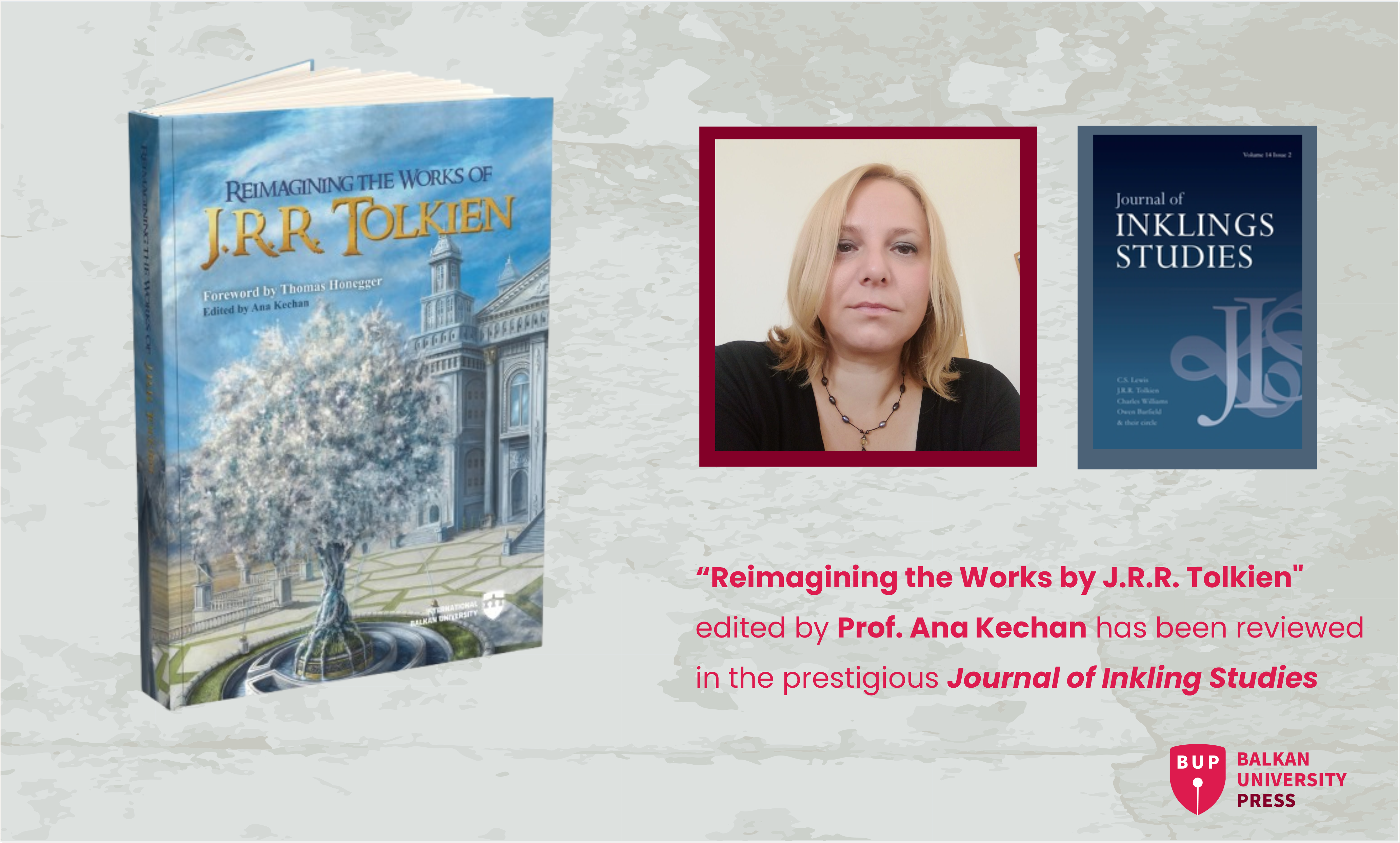
-
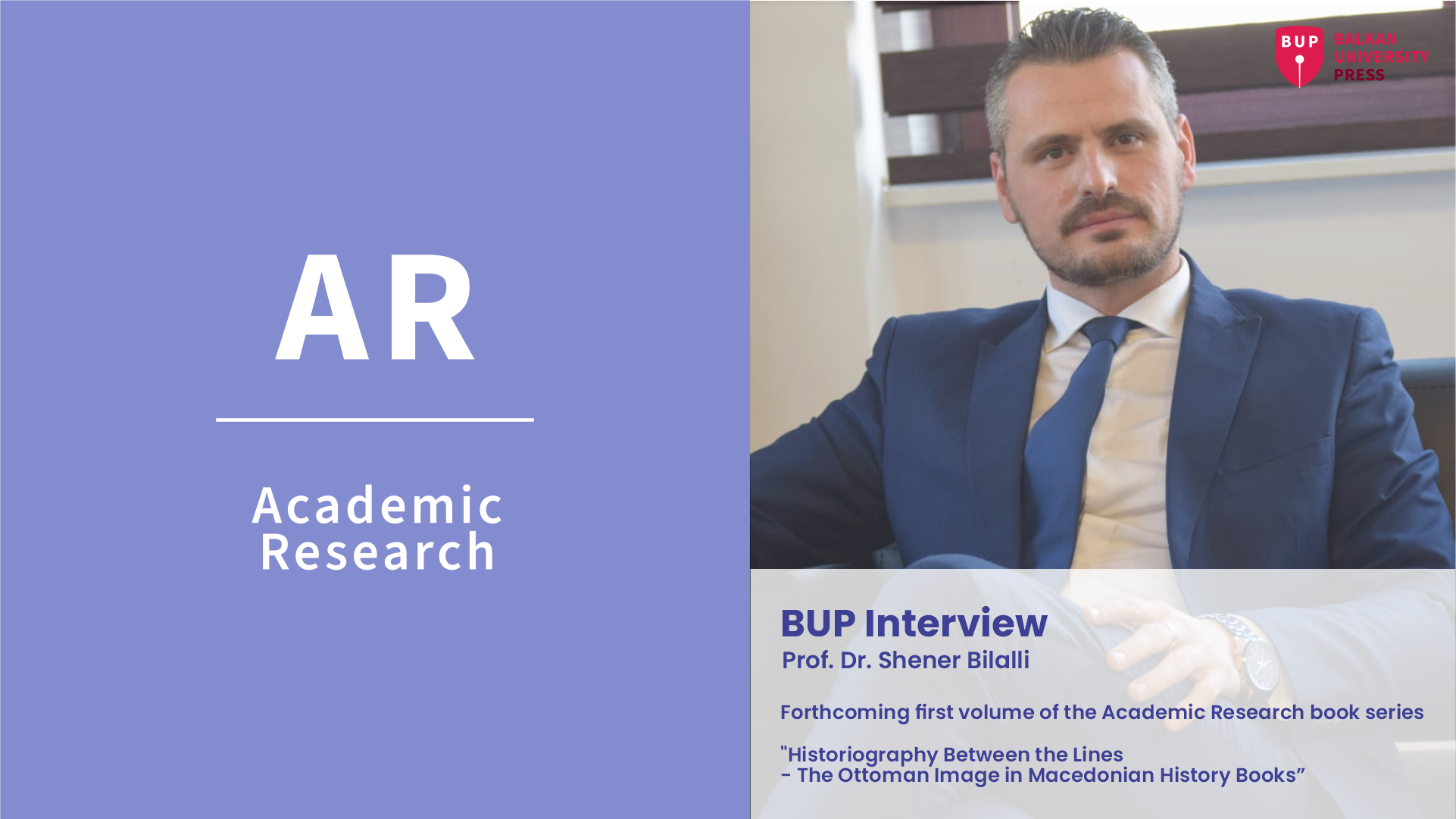
BUP Interview with Prof. Shener Bilalli
Date: 30.10.2024 -
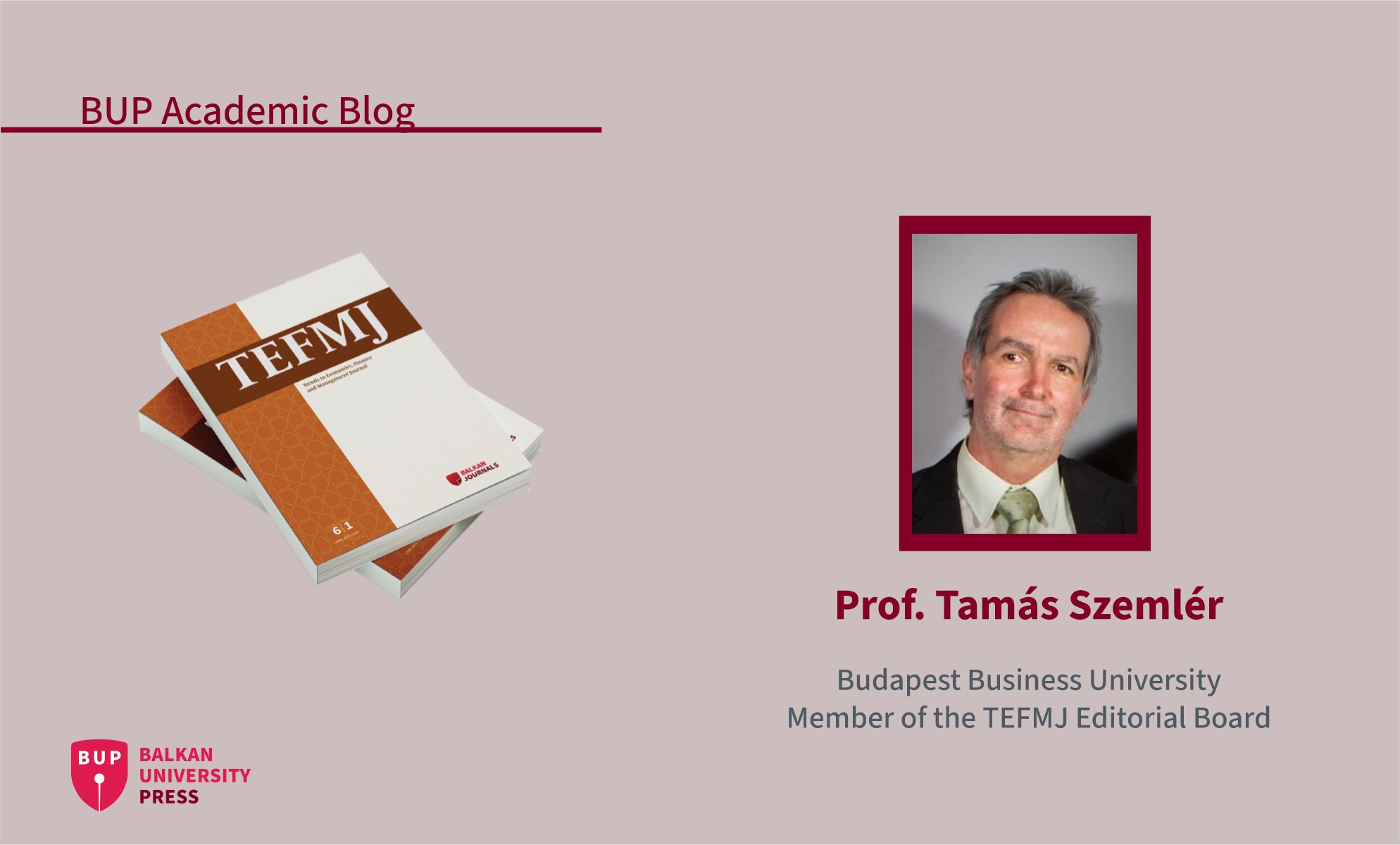
BUP Academic Blog with Prof. Tamás Szemlér
Date: 08.11.2024 -
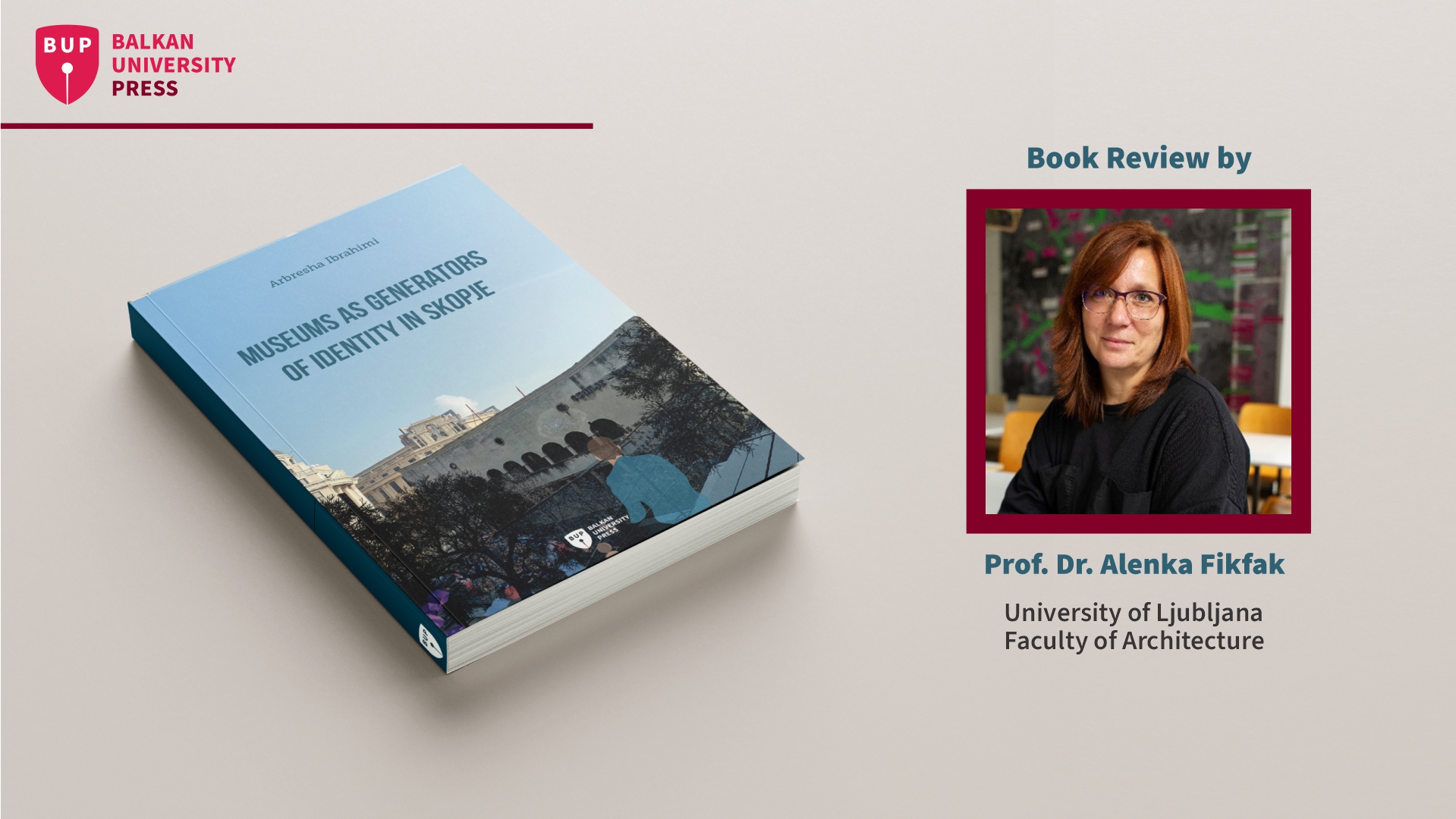
Book Review for "Museums as Generators of Identity in Skopje"
Date: 20.11.2024 -
BUP Interview with Arbresha Ibrahimi
Date: 25.11.2024 -

The first volume of Balkan Research Journal is here
Date: 02.12.2024 -
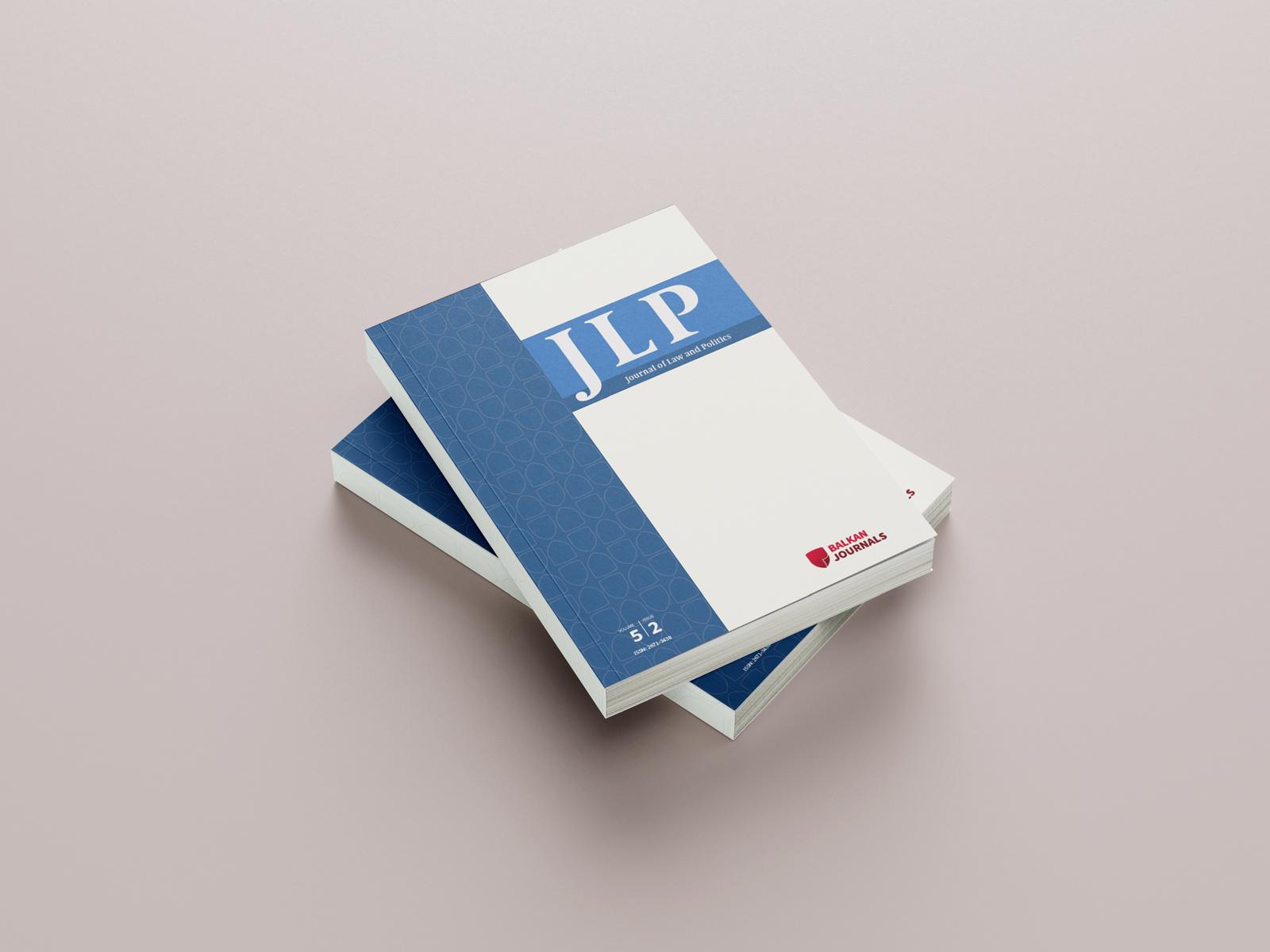
Volume 5, Issue 2 of the Journal of Law and Politics is published
Date: 31.10.2024 -

The inaugural issue of Journal of Balkan Architecture is published
Date: 29.11.2024 -
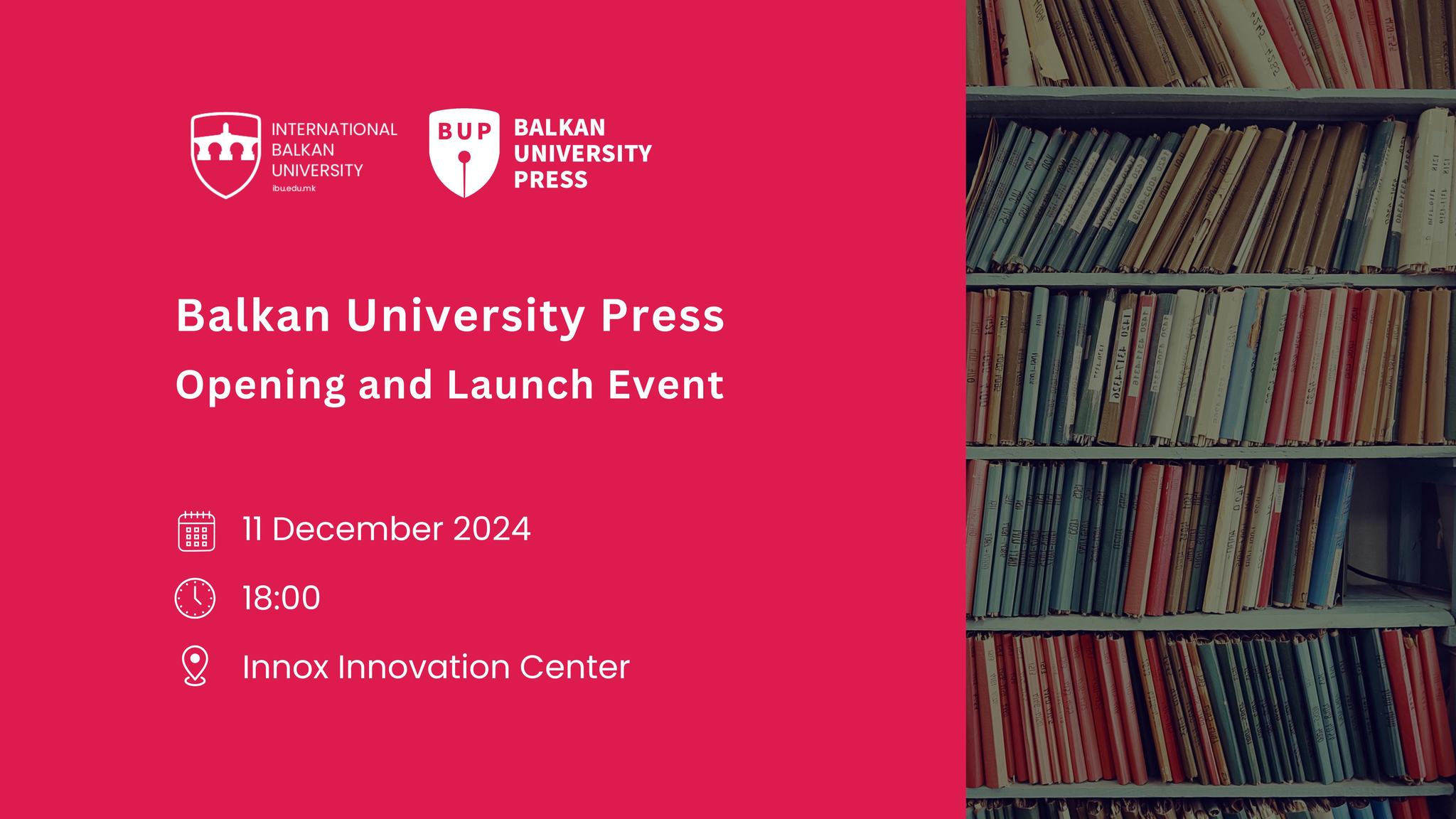
BUP Launch Event
Date: 10.12.2024 -
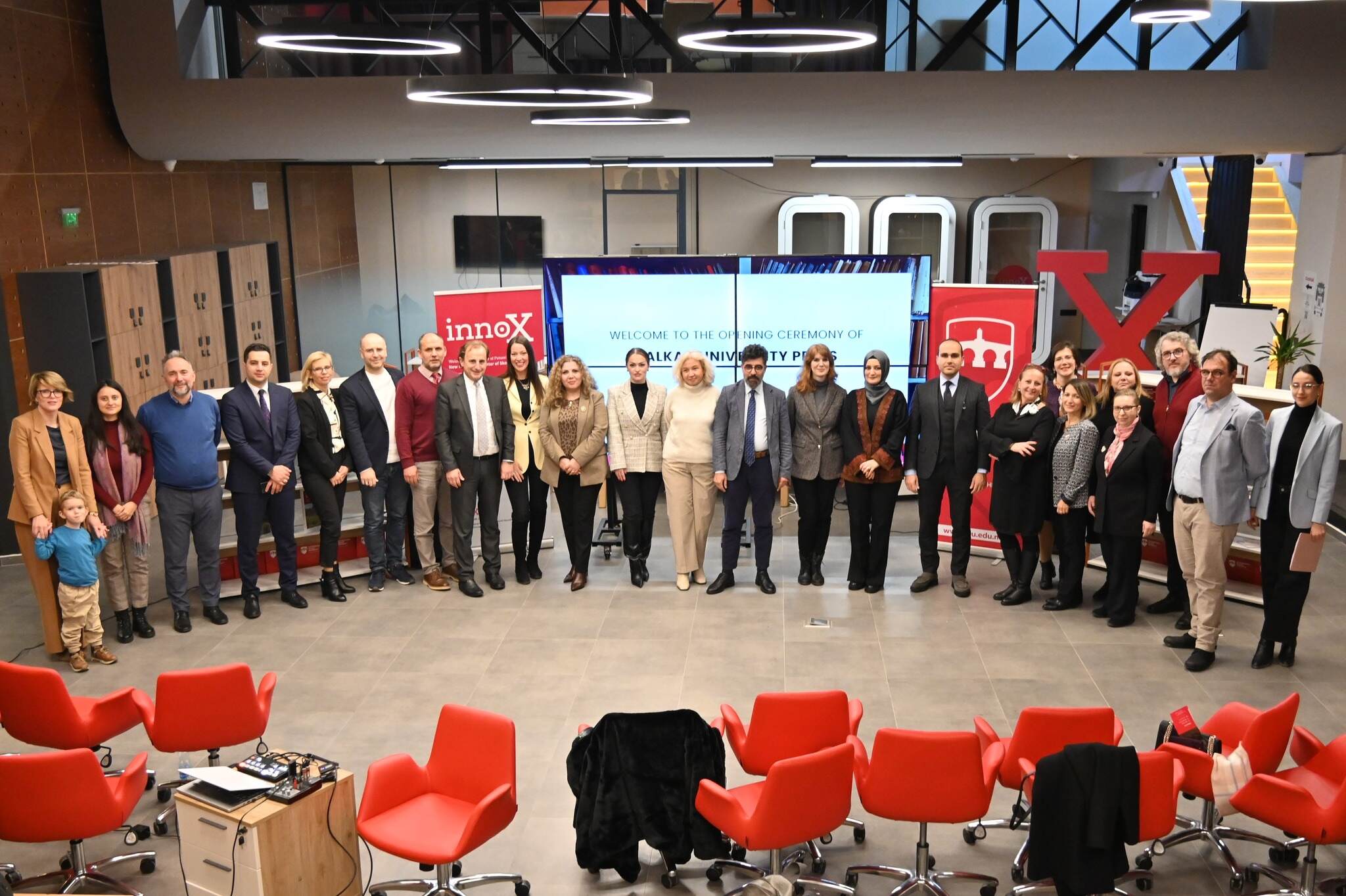
Grand Launch of Balkan University Press
Date: 12.12.2024 -

BALKAN UNIVERSITY PRESS
Date: 09.01.2025 -

Publication of a book
Date: 30.12.2024 -
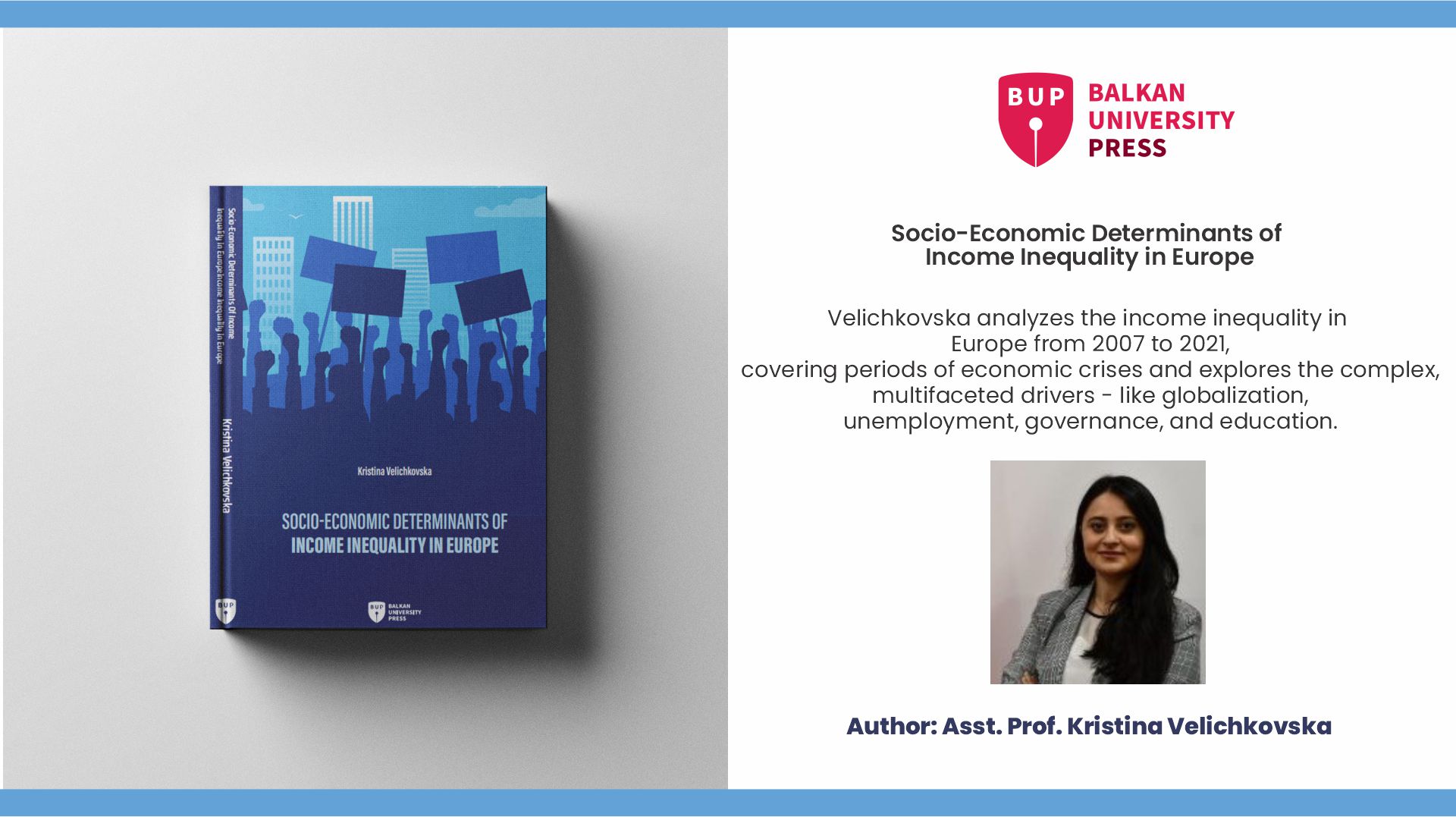
Publication of a book
Date: 24.12.2024 -
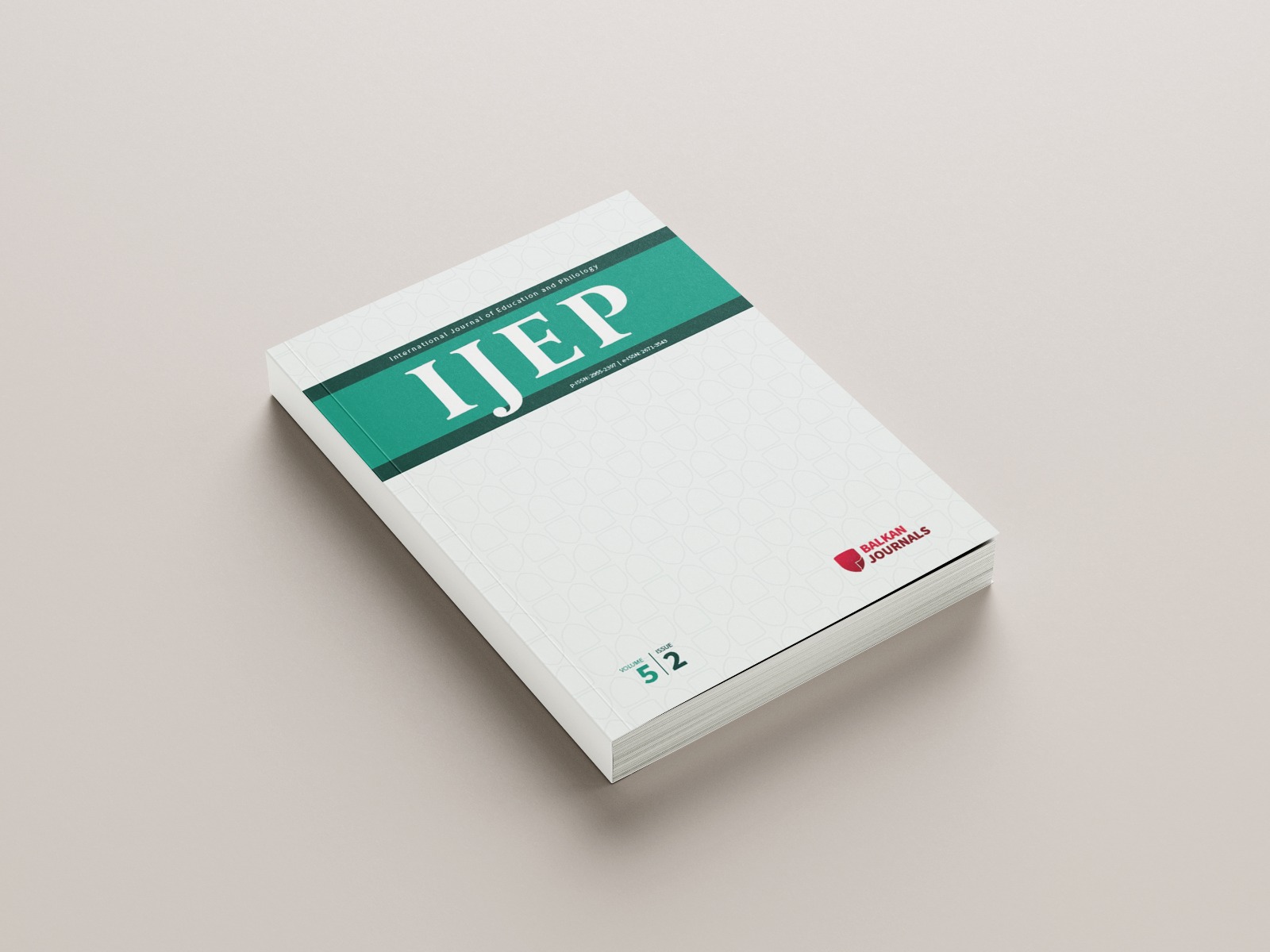
The December Issue of IJEP is published
Date: 31.12.2024 -

The December Issue of TEFMJ is published
Date: 16.01.2025 -
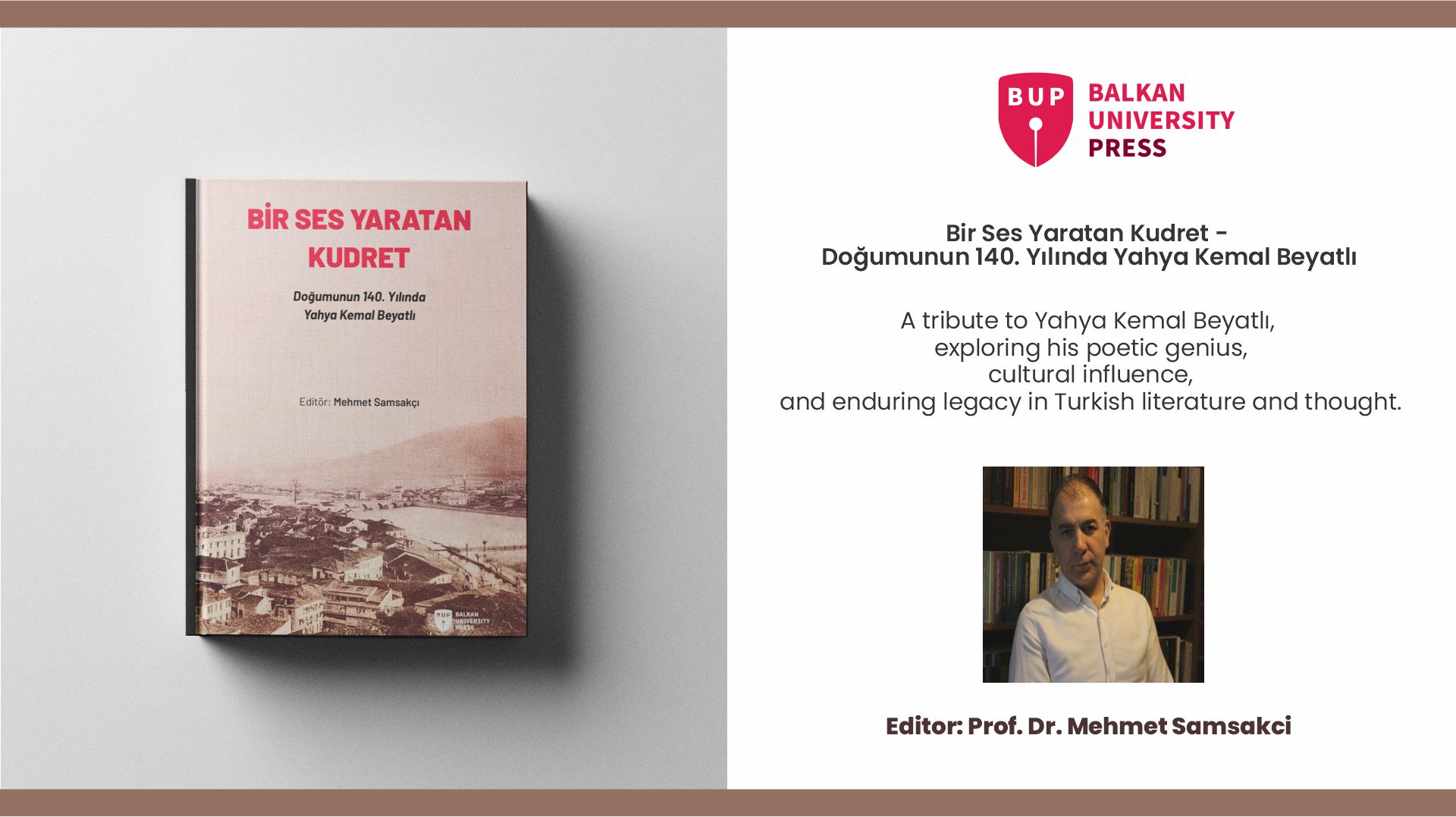
-
BUP Interview with Asst. Prof. Kristina Velichkovska
Date: 29.01.2025 -
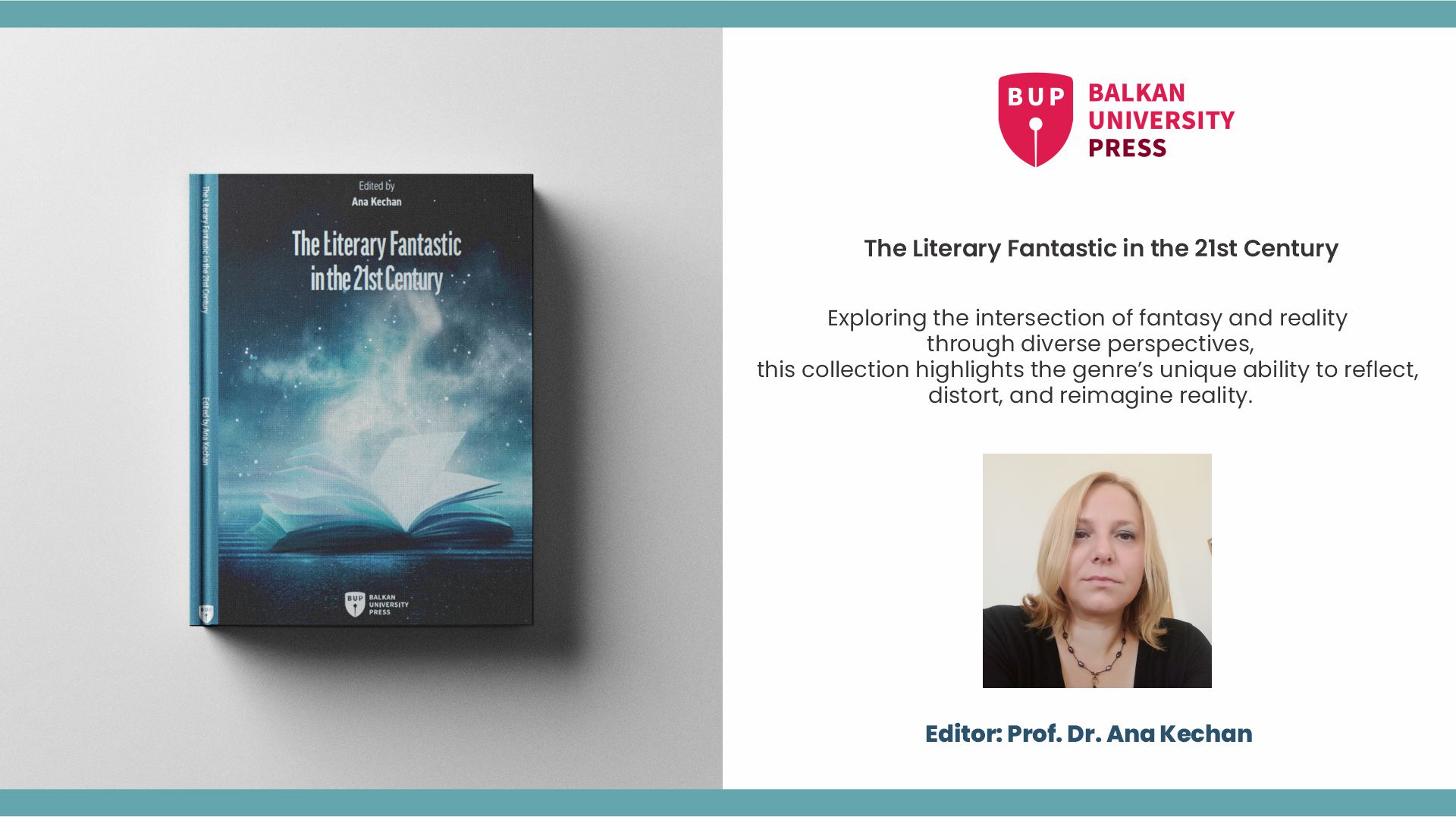
-
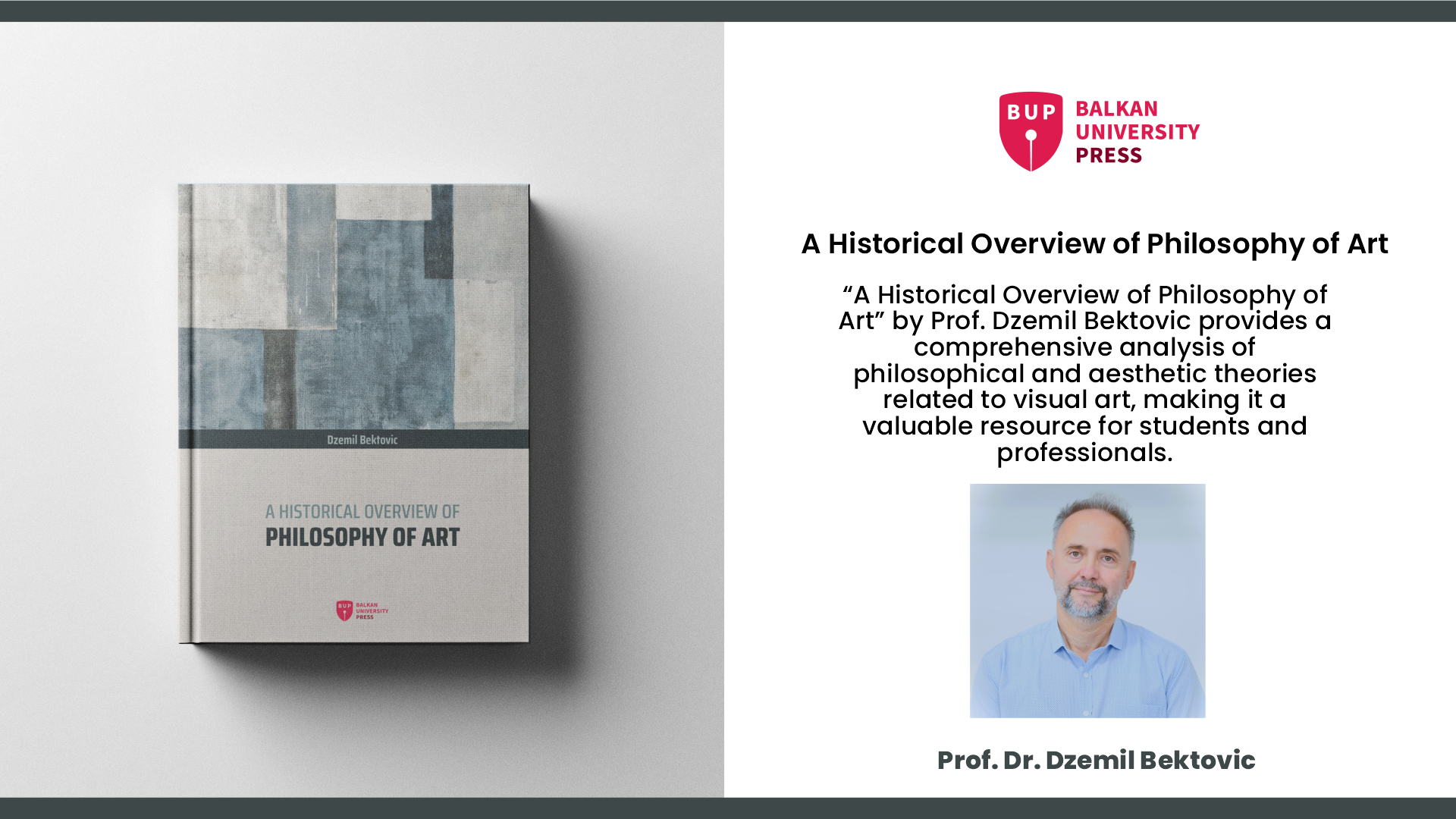
-
BUP Interview with Kefajet Edip
Date: 18.02.2025 -
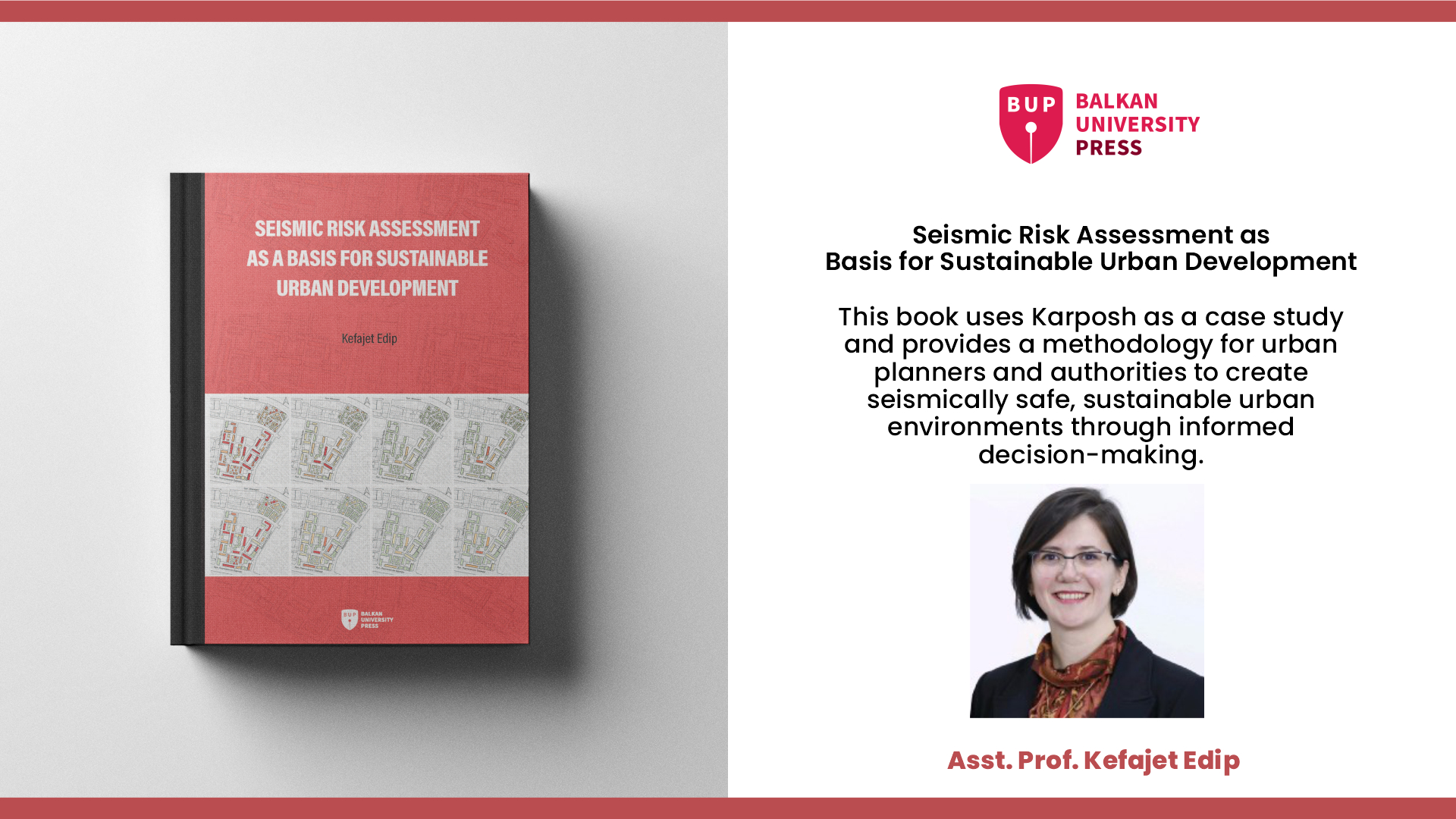
-

-

BUP Interview with Prof. Dr. Ana Kechan
Date: 30.04.2025 -

BUP Interview with Ozlem Kurt
Date: 14.05.2025 -

BUP Interview With Assoc. Prof. Igballe Miftari-Fetishi
Date: 03.09.2025 -
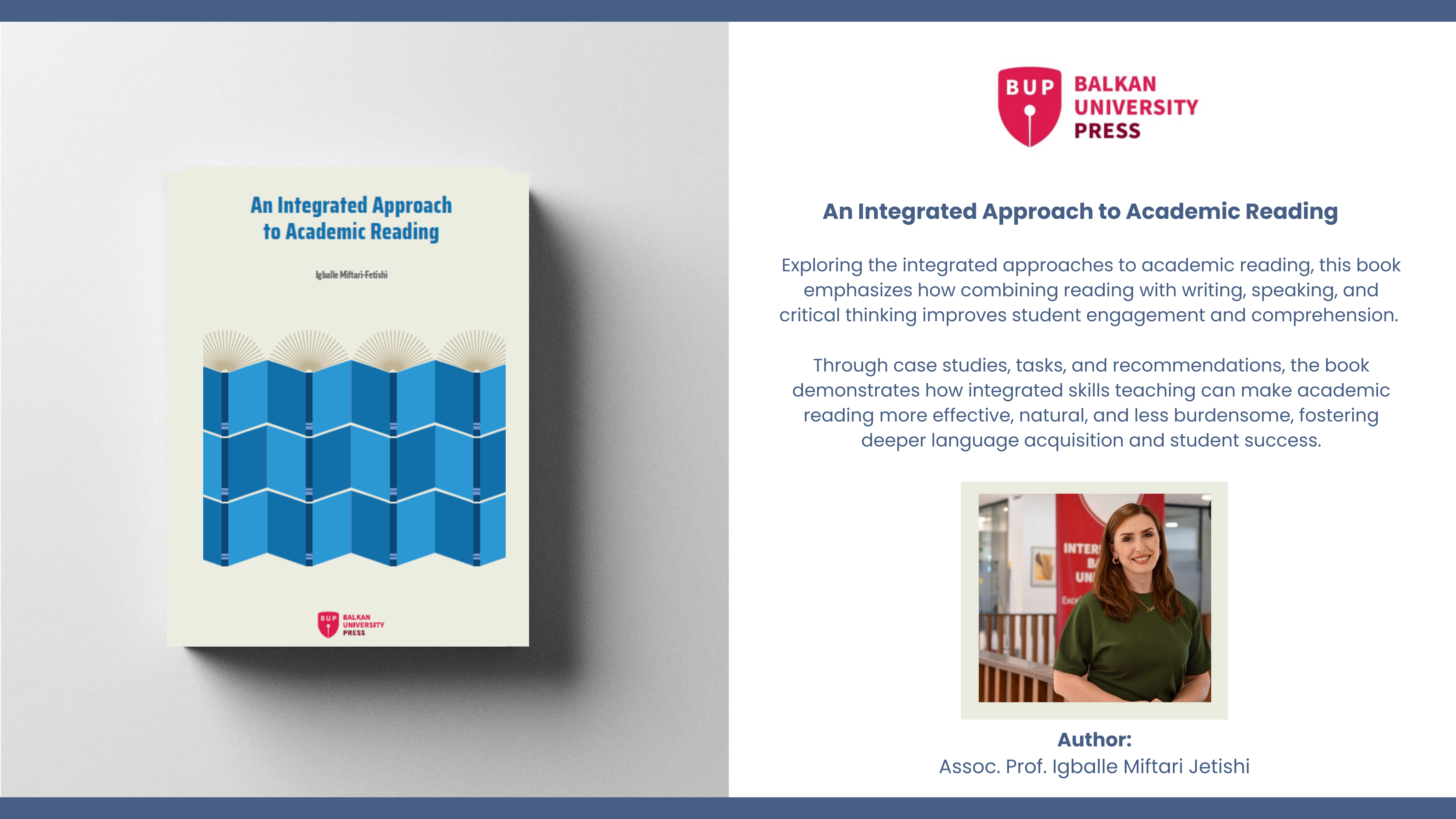
Publication of the book "An Integrated Approach to Academic Reading"
Date: 09.09.2025 -
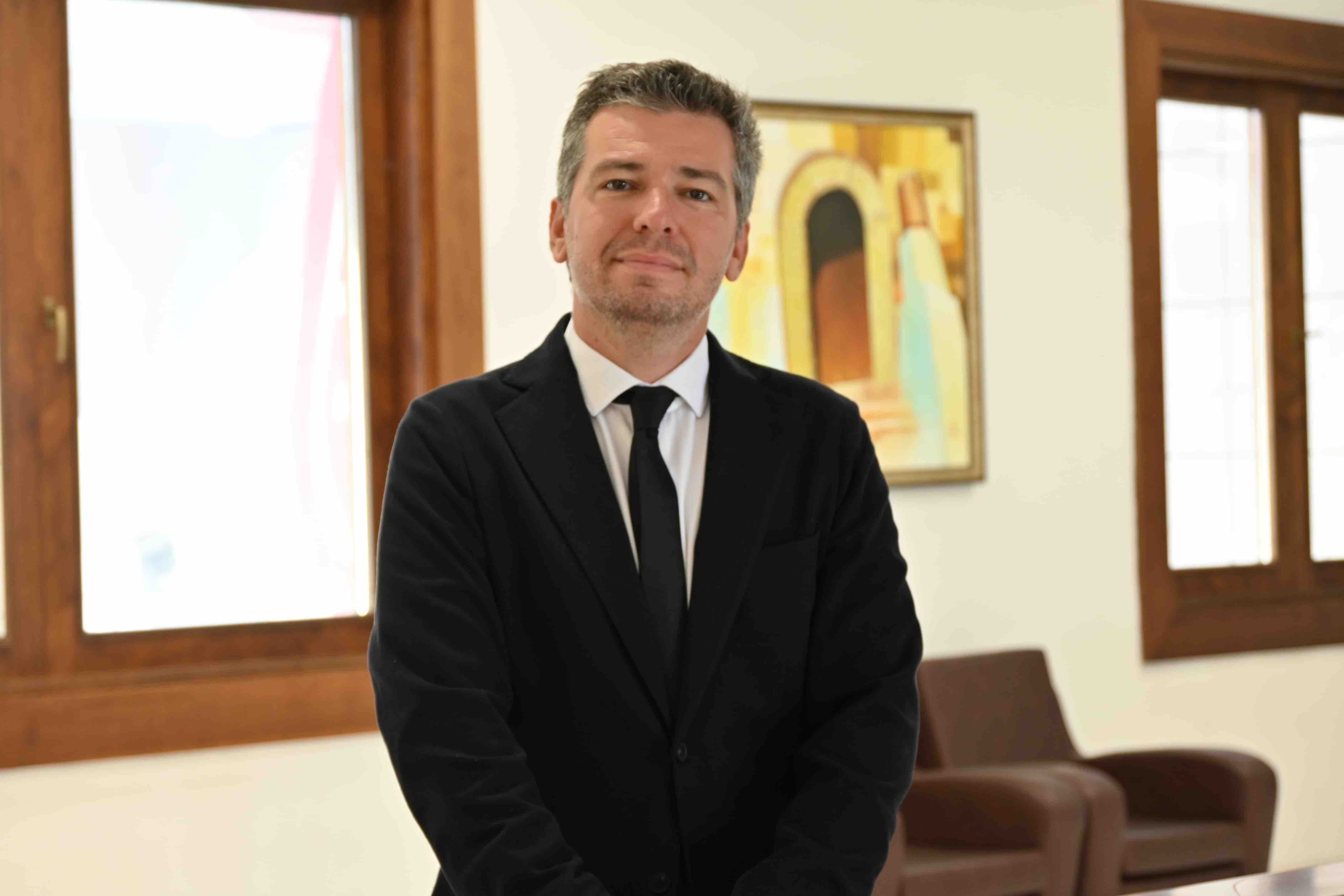
BUP Interview with Nikola Dacev
Date: 15.09.2025 -

Publication of the book "Civil Law"
Date: 17.09.2025 -
BUP Interview with Ekaterina Namicheva Todorovska
Date: 22.09.2025 -
.png)
-
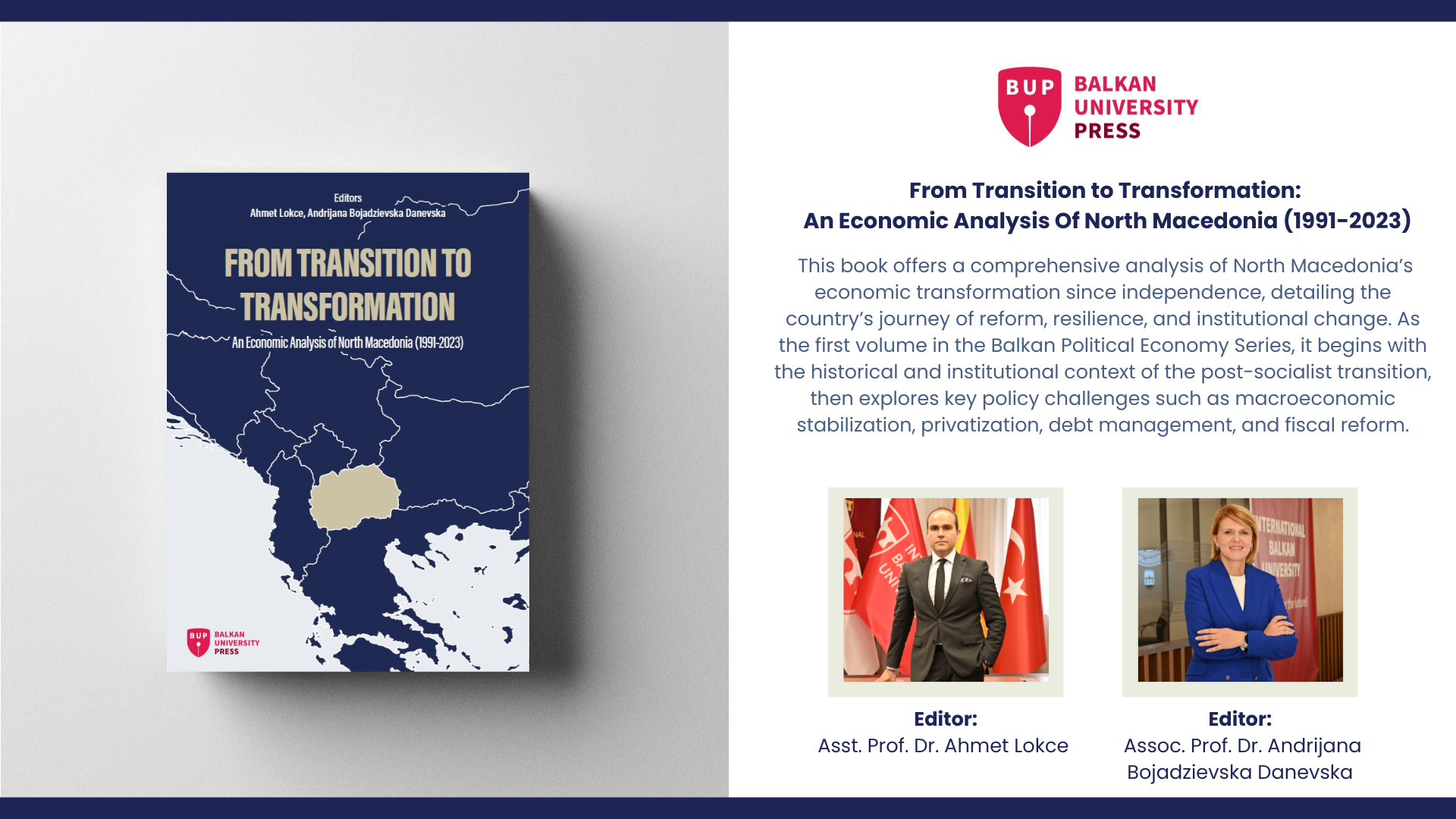
The first book of the Balkan Political Economy Series is published
Date: 07.10.2025 -

OPEN CALL for Book Chapters
Date: 08.10.2025 -

-
.png)
-

BUP Interview with Sumea Ramadani
Date: 24.10.2025 -
.png)
Publication of the book "Two Worlds of Healing" by Sumea Ramadani
Date: 05.11.2025 -
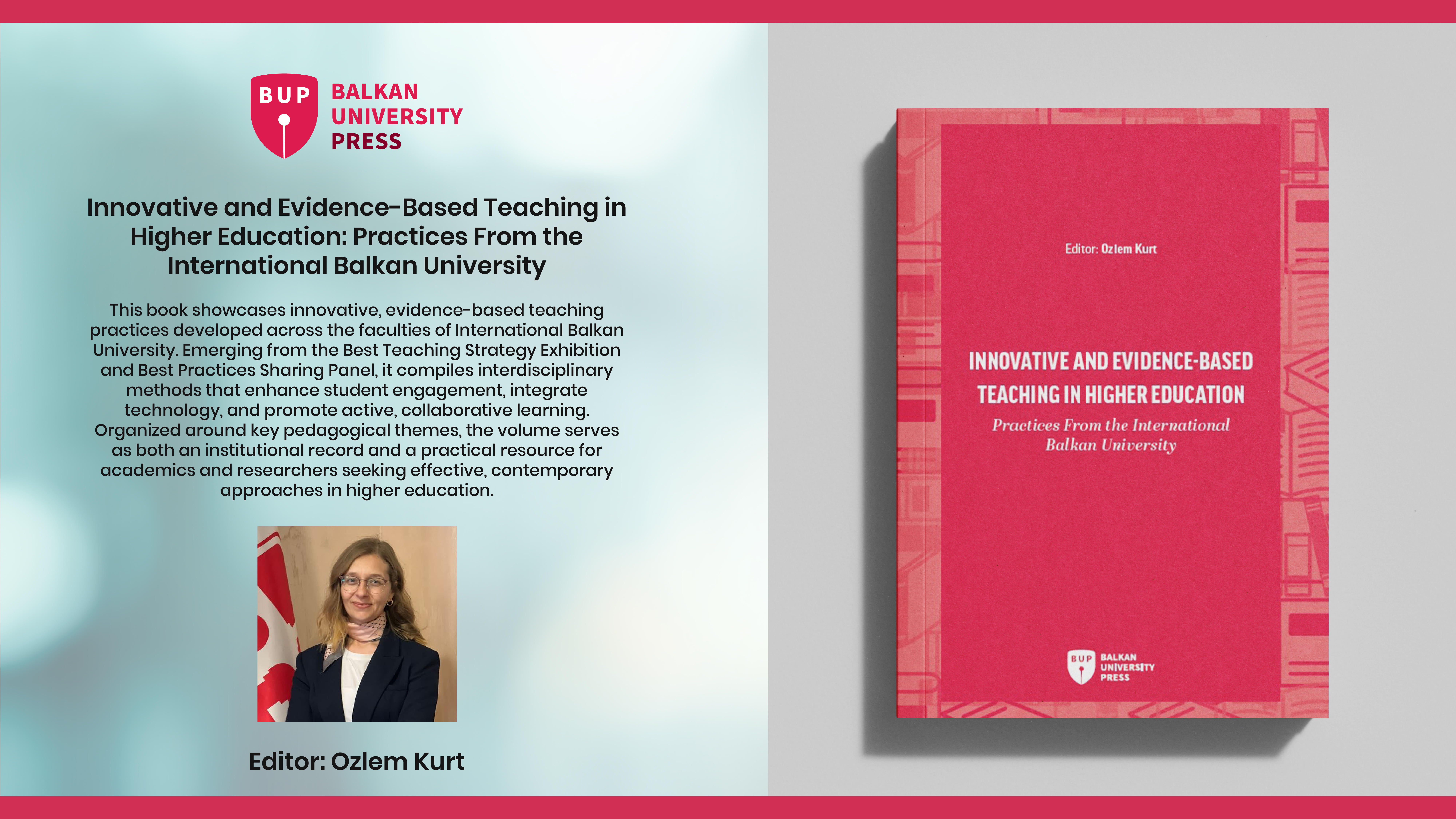
New BUP Publication
Date: 23.12.2025 -
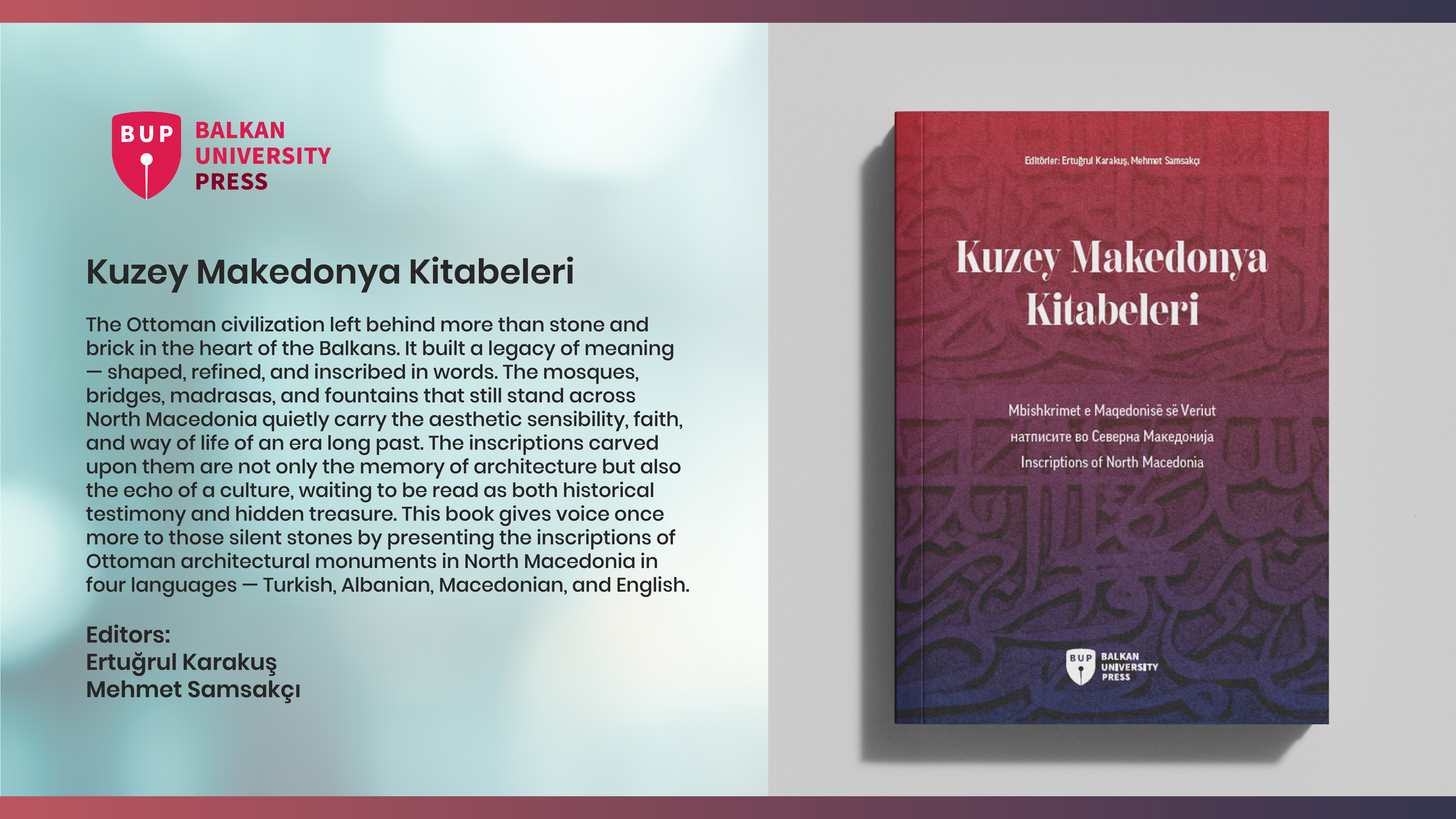
Publication of the book "Kuzey Makedonya Kitabeleri"
Date: 26.12.2025
